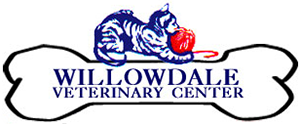Library
-
Silver sulfadiazine topical is an antimicrobial used to treat skin infections and burns in cats, dogs, and exotic pets. It is used off label in veterinary medicine. Silver sulfadiazine topical comes in a topical cream.
-
Sodium chloride (hypertonic) ophthalmic is a topical medication used to reduce surface (corneal) swelling of the eye in cats and dogs. Sodium chloride is available without a prescription but should only be used under the direction of a veterinarian. It may be used “off label” or “extra label” to treat eye conditions in animals other than cats or dogs. Sodium chloride (hypertonic) ophthalmic comes in ointment and liquid drop form. Avoid use in animals with corneal ulceration or dry eye.
-
Spironolactone/benazepril (brand name Cardalis®) is a combination aldosterone antagonist (spironolactone) and angiotensin-converting enzyme inhibitor or ACE inhibitor (benazepril) used to treat certain types of congestive heart failure in dogs. Use to treat other heart conditions or in other species is "off label" or "extra label". Spironolactone/benazepril comes in chewable meat-flavored tablet form.
-
Stud tail, or tail gland hyperplasia, is a condition in which the oil glands near the base of the tail enlarge. This condition causes hair loss, excess accumulation of oils in the skin and on the fur, plugged hair follicles, and secondary infections. It is most common in intact male dogs, as these glands are under hormonal control, but any dog can be affected. Other hormonal imbalances and skin disorders can also cause this problem. Prognosis is generally good, especially if the underlying cause can be identified and controlled.
-
Many pets are sensitive to being restrained for grooming. With slow progress and positive rewards, your pet can learn to accept or even enjoy having their teeth cleaned.
-
Sulfur, precipitated, topical (brand name Sulfodene®, others), is a medication used in the treatment of seborrheic (dry or greasy dandruff) disorders in cats and dogs to dissolve skin flakes and scales. It can have antibacterial, antifungal, and antiparasitic effects. It may be specially compounded and/or combined into a formulation with other medications.
-
Tafluprost ophthalmic is a topical medication used to reduce intraocular pressure (pressure within the eye) in dogs with glaucoma. This medication is used off label in veterinary medicine. Tafluprost ophthalmic comes in liquid drop suspension form.
-
Telmisartan is an angiotensin receptor blocker (ARB) used to treat high blood pressure in cats and off-label to treat kidney disease in both cats and dogs. This medication is given by mouth in the form of a liquid or tablet. It may be given with or without food but is better absorbed if given on an empty stomach. Side effects may include vomiting, diarrhea, lack of appetite, low blood pressure, and decreased energy. There are several drugs that can contribute to adverse effects when given with telmisartan. Be sure to tell your veterinarian about any medications (including vitamins, supplements, or herbal therapies) that your pet is taking. If you suspect an overdose or an adverse reaction to the medication, call your veterinary office immediately.
-
Complete and accurate medical records are like a medical diary for your pet. The ability to review your pet’s medical history before the first appointment will allow your new veterinarian to provide exceptional care that is tailored and timely. You can request that your previous veterinary clinic send your pet's records to your new veterinarian.
-
Nutrition plays an essential role in treating and preventing urinary stones (uroliths). Since the diet can affect urine dilution, composition and pH, pet foods can be critical to the success or failure of treatment and prevention. Important factors are covered, such as the importance of water intake, diet composition, relative supersaturation (RSS) testing, and urinary diets.
